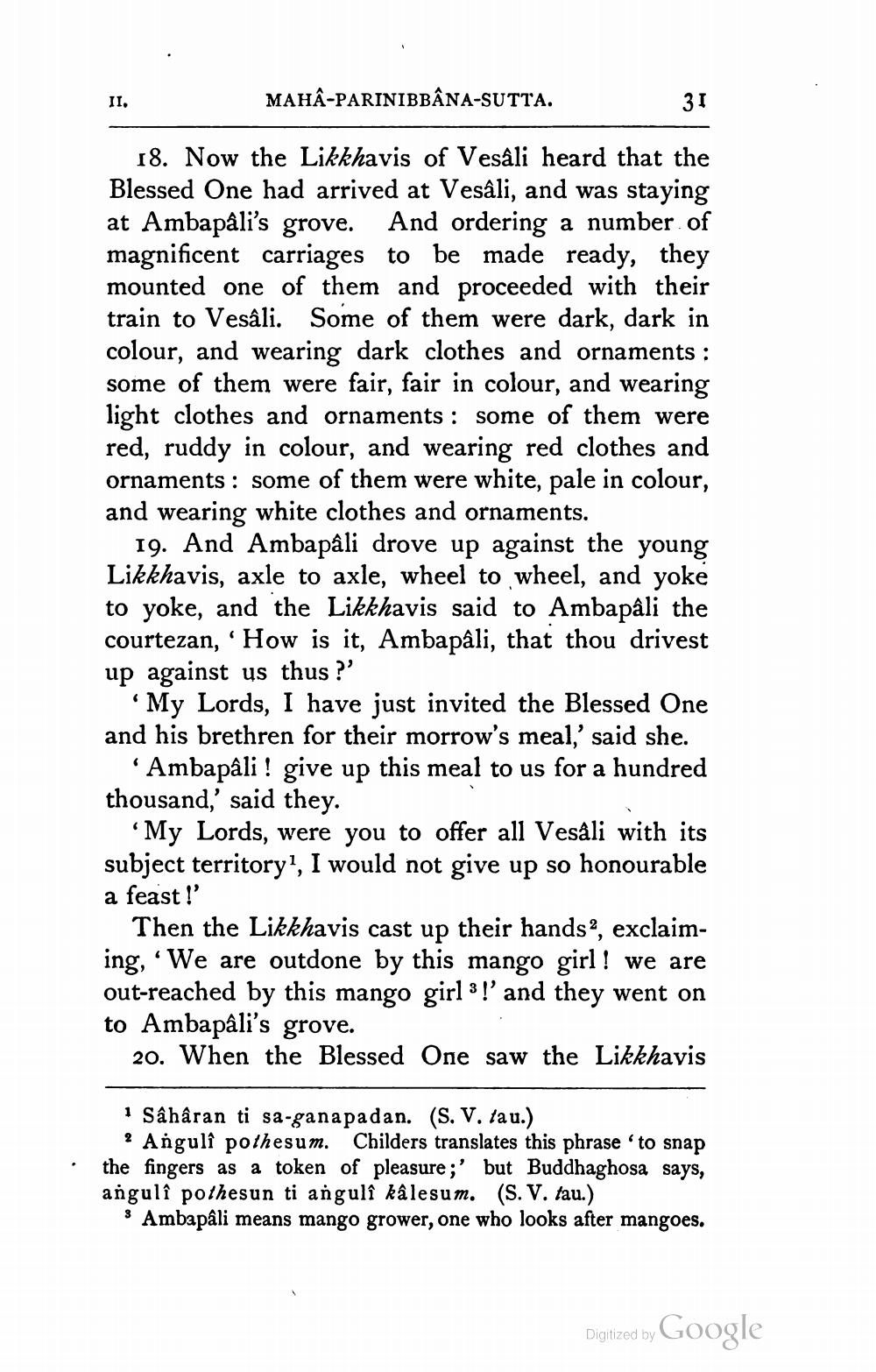________________
II.
MAHA-PARINIBBÂNA-SUTTA.
31
18. Now the Likkhavis of Vesali heard that the Blessed One had arrived at Vesali, and was staying at Ambapåli's grove. And ordering a number of magnificent carriages to be made ready, they mounted one of them and proceeded with their train to Vesâli. Some of them were dark, dark in colour, and wearing dark clothes and ornaments : some of them were fair, fair in colour, and wearing light clothes and ornaments : some of them were red, ruddy in colour, and wearing red clothes and ornaments : some of them were white, pale in colour, and wearing white clothes and ornaments.
19. And Ambapâli drove up against the young Likkhavis, axle to axle, wheel to wheel, and yoke to yoke, and the Likkhavis said to Ambapâli the courtezan, 'How is it, Ambapâli, that thou drivest up against us thus ?'
My Lords, I have just invited the Blessed One and his brethren for their morrow's meal,' said she.
'Ambapâli! give up this meal to us for a hundred thousand,' said they.
My Lords, were you to offer all Vesali with its subject territory!, I would not give up so honourable a feast!'
Then the Likkhavis cast up their hands?, exclaiming, ‘We are outdone by this mango girl! we are out-reached by this mango girl 3!' and they went on to Ambapâli's grove.
20. When the Blessed One saw the Likkhavis
* Sâhâran ti sa-ganapadan. (S. V. tau.)
? Angulî pothesum. Childers translates this phrase 'to snap the fingers as a token of pleasure ;' but Buddhaghosa says, angulî pothesun ti angulî kâlesum. (S. V. tau.)
3 Ambapâli means mango grower, one who looks after mangoes.
Digitized by Google




